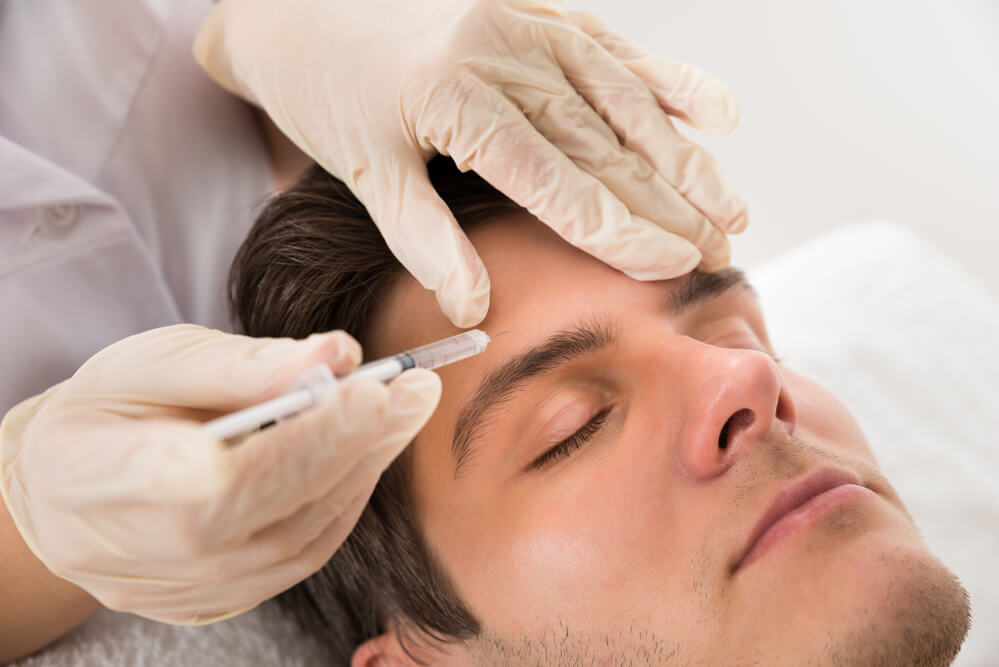Botox is a wonderful procedure that allows the patient to get rid of fine lines, crow’s feet, and wrinkles around the face. It effectively allows them to reverse the signs of aging and improve how youthful they feel. But is it possible that Botox can affect your eyes and vision?
According to Flawless Faces Med Spa, which is the closest place to get Botox near me, Botox can have an effect on your eyes and vision. Some patients will suffer from blurred vision that goes away after a few days. Others may have droopy eyelids that can be bad enough to hinder the overall vision. Most of these will clear up on their own, but if they get worse or you find that you can’t see out of one eye after getting the procedure, it is best to talk to your doctor and seek medical assistance.
There are many great benefits to getting Botox for improving the look and feel of your skin. But worrying about eye and vision problems when you do it can be worrisome. Let’s take a closer look at some of the common eye problems that come with Botox and see why Botox can cause these issues.
botox near me
What Eye Problems Can Botox Cause?
After your doctor injects Botox, it is possible for the eyes to become dry and irritated, with some getting red and bloodshot in the process. Since the Botox procedure will involve injecting chemicals into the skin that relaxes the facial muscles, there is a risk of an allergic reaction to occur. For some, this will affect the vision for a limited time.
There are a few different eye problems that Botox is able to cause. The most common include:
Blurred Vision
Since Botox is injected near the eyes, your doctor will need to be careful with doing these kinds of injections. Any time you plan to fix brow lines and crow’s feet, this can be a concern. Once your doctor injects the Botox, it is possible for the eyes to get irritated and dry, and sometimes that irritation will cause blurred vision or mess with your ability to see.
The good news is that, in most patients, this is a temporary problem. If you find that the blurred vision is not healing on its own or you feel that it is getting progressively worse, then it is time to see an optician or doctor immediately.
Droopy Eyelids
Another common side effect that patients may notice when it comes to getting Botox near the eyes is that they will suffer from droopy eyelids. It is estimated that about 5% of patients will experience this kind of symptom.
This symptom is most common when the chemicals in the Botox leak outside of the intended muscle group and start to affect the eyelids. Since crow’s feet and wrinkles are close to the eyes, it is not uncommon for this to happen for a bit.
When the patient has droopy eyelids, it is going to directly impact their vision. Many patients will report that they have decreased eyesight after Botox because the eyelid is not working well.
In some patients, this will clear up quickly and is just a symptom that lasts for a short amount of time. For others, it can last just as long as Botox does. Because the effects of Botox are designed to last for three to six months, it is possible that the droopy eyelids will last just as long, causing an issue with your eyesight for months. This is a big problem for your vision and eye health.
What Should I Do If My Vision is Affected by Botox?
If you are struggling with blurry vision or droopy eyelids after receiving an injection of Botox in the eyes, then you need to call your optician or your doctor to see what your options are. Most of the time, this is a temporary problem that will heal itself and is not a big deal, but there are situations where it can become a big problem. If the vision problem gets worse or you start to lose vision out of one eye or the other, then it is time to go to the emergency room to get help as soon as possible.
Discussing Your Botox Options with Your Doctor
Before you get an injection of Botox, it is a good idea to talk with your optician or your doctor about the side effects and any concerns that you may have about the procedure. They will be able to go over your medical history to see if there is a higher risk for vision problems or not. Keep in mind that when Botox is inserted near the eyes for wrinkles and other signs of aging, it is more likely that these issues can occur. Your doctor will walk you through it all and help you determine if Botox is the right solution for you.

